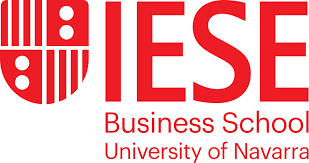Leading with insight: how executive coaching drives performance
Leading with insight: how executive coaching drives performance
Thursday, 23rd March 2023
In the day-to-day crisis management that can often engulf a business leader, it can be hard to come up for air. Here, three Timoney Leadership Institute alumni share how leadership coaching took them on journeys of personal development that benefited their business.
With so many priorities competing for a business leader’s attention in the here and now, it can be hard to take a step back to think about tomorrow or the weeks and months to come. That’s exactly what makes leadership coaching so important. The valuable perspective it provides can help leaders to identify particular personality traits and improve self-awareness, to develop characteristics that enable their teams and businesses to thrive.
Timoney Leadership Institute alumni shared their experiences of executive coaching at an event at the K Club to mark the Institute’s 10th anniversary.
Introducing the lively discussion, Moore Global’s CEO Anton Colella talked of the journeys of those who are in leadership roles, “where they've walked sometimes painful journeys and still learning journeys. And they should provide inspiration to us.”
At various points in a leader’s career, coaching can be an effective way to address a particular issue – like coming into a new role such as general manager – to map out a path forward for themselves, or to set their business on a growth trajectory.
Executive coaching using the B5-PLUS assessment tool can help leaders to gain a deeper awareness of themselves. Fiona Steed, general manager of the Medicine Directorate at UL Hospital Group, took this approach. She says the profile that emerged from B5-PLUS and the subsequent coaching allowed her “to reflect on the person I am, to be aware that I am an emotional leader... Knowing that it was OK to be that person.”
The advantage of a coach is that they’re not aware of the intricacies of the coachee’s work, or the personalities involved, and this can take all the emotion out of the discussions. “It was really good to have someone who could just sit back and do the helicopter view, for me of me. And allow me to grow underneath that. That was really important,” Fiona reflected.
As a former Irish women’s rugby international, competitive instinct comes naturally to Fiona. Coaching helped her to adjust her focus and to achieve great personal growth. “What changed, for me, is wanting to be the best that I can be. And so I don’t really mind if I’m not first … and as long as I bring everybody else with me, and encourage all of the staff that work with me to be the best that they can be, that’s what drives me.”
Michelle Vance is CEO of Lily O’Brien’s Chocolates. She has been with the business for 15 years, starting as a management accountant and later finance director. She started her coaching journey with Timoney Leadership Institute, with the aim of learning, and it coincided with a time of “massive change” in the business after it was acquired by a Polish company.
“Timoney helped me get through that journey and gave me insight into not only how to deal with it myself, but also in what we needed to change as a business and navigate through that,” Michelle recalled.
Darren McMillan, managing director of Northstone Materials, started seeing a coach in 2011 and “that just blew my mind on what that could do to your career and to help your mindset”. Darren said the personality profiling during the coaching sessions helped him to realise he needed to work on his empathy as a leader. “When we started to break that down, we realised that I had a goal and I had seen where I was going, and I just expected everybody to come with me, without really taking time to explain why we were going there,” he said.
So how long should a coaching engagement last? Dr Alberto Ribera, a trained psychiatrist and academic director of the coaching unit at IESE, said they work best when they’re for a fixed period of time. “If coaching is a process, where you work with someone with the idea that that person gains clarity about where he or she wants to work, where he or she is and where he or she wants to go, and has resources for that journey, I think that the timeframe should be limited to six months,” he said.
Dr Ribera recommended that leaders should also cultivate relationships with “sparring partners”: this might be a work colleague, a mentor or a spousal partner, who will have conversations with the person, listen to them and also challenge their views.
Would your leadership journey benefit from increased self-awareness and coaching to move forward? See how you can transform your leadership through focused and targeted engagement. For more details, see Timoney Leadership Institute’s executive coaching page.

